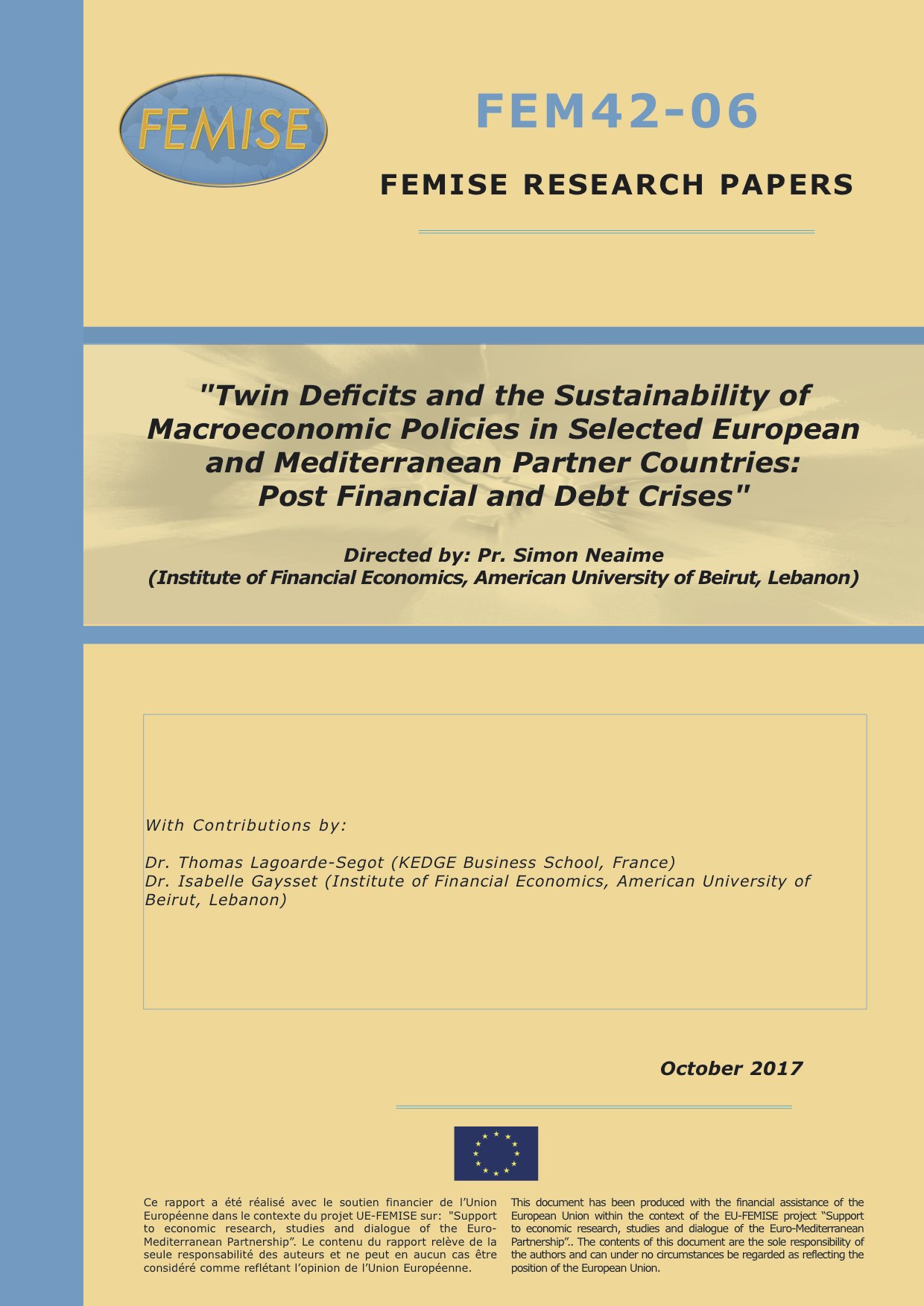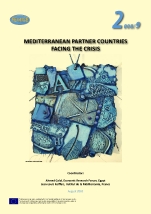 Our empirical results validate the Twin Deficit hypothesis in both EU and MED samples, but with diverging findings regarding the direction of causality. While the trade balance seems to be driving the budget deficit in MED countries –thereby validating the current account targeting approach – the relationship appears to run in the opposite direction in the case of EU countries, where the budget balance appears to be driving the current account. Given the well-documented dependence of MED countries on trade with the EU and the fact that most EU countries have implemented austerity policies in the aftermath of the financial crisis – thereby restricting aggregate demand and imports – we argue that the ensuing drop in export income for MED countries has contributed to increasing the budget deficit in these countries, by virtue of the uncovered positive causality between the current account and the budget balance. One natural MED policy makers’ response would be to implement austerity measures; however, such measures which may be necessary, are socially costly in the current social context in MED countries, and would not alone permit to stabilize the budget balance given that they would leave the trade balance unaffected. Our findings thus represent a warning against such ‘ready-made’ macroeconomic policy responses and indicate that austerity policy in EU countries have unexpected consequences for fiscal stability in MED countries. We thus call for better macroeconomic policy coordination between the EU and its Southern peripheral MED countries.
Our empirical results validate the Twin Deficit hypothesis in both EU and MED samples, but with diverging findings regarding the direction of causality. While the trade balance seems to be driving the budget deficit in MED countries –thereby validating the current account targeting approach – the relationship appears to run in the opposite direction in the case of EU countries, where the budget balance appears to be driving the current account. Given the well-documented dependence of MED countries on trade with the EU and the fact that most EU countries have implemented austerity policies in the aftermath of the financial crisis – thereby restricting aggregate demand and imports – we argue that the ensuing drop in export income for MED countries has contributed to increasing the budget deficit in these countries, by virtue of the uncovered positive causality between the current account and the budget balance. One natural MED policy makers’ response would be to implement austerity measures; however, such measures which may be necessary, are socially costly in the current social context in MED countries, and would not alone permit to stabilize the budget balance given that they would leave the trade balance unaffected. Our findings thus represent a warning against such ‘ready-made’ macroeconomic policy responses and indicate that austerity policy in EU countries have unexpected consequences for fiscal stability in MED countries. We thus call for better macroeconomic policy coordination between the EU and its Southern peripheral MED countries.
A major policy issue to be faced in the coming years is whether macroeconomic policies have reached a dead end and are in a bind. With respect to the introduction of macroeconomic stabilization programs in the EU and MED countries, there is obviously no room to use both monetary and fiscal policies in tandem to curb those macroeconomic imbalances. For the MED countries of Lebanon and Jordan with very limited fiscal space and fixed exchange rates and open capital accounts, monetary policy is already ineffective in terms of macroeconomic stabilization. Egypt rendered its monetary policy more effective in dealing with external shocks after the recent smart move to a flexible exchange rate regime. Tunisia and Morocco seem to be also moving in that same direction. While fiscal space in the EU is also limited due to the past accumulation of huge public debts, the European Central Bank’s (ECB) Quantitative Easing (QE) policy remains an effective tool in preventing the EU’s unsustainable fiscal policies form developing into further debt crises similar to the Greek debt crisis.
With the current debt crisis unfolding in some EU countries, low GDP growth rates and oil prices and high debt levels in several MED countries, fiscal policy is clearly not a macroeconomic policy option anymore due to limited fiscal space. With one monetary policy conducted by the ECB and the absence of a political union, EU countries have registered over the past decade significant current account and budget deficits. Monetary Policy will remain ineffective as long as expectations of the private sector are not adjusted positively, and banks remain in poor shape, mainly Italian and Greek banks. The Greek Debt crisis is negatively affecting the behavior and expectations of businesses and consumers, and austerity measures are negatively affecting aggregate demand and the growth rate of GDP. In particular, stagnant wages and high unemployment rates are adversely affecting domestic demand, especially in the absence of fiscal space in most MED and EU countries due to the accumulation of large public debts and recurrent budget and current account deficits.
In the MED region, the ineffectiveness of monetary policy is due to the presence of fixed exchange rates and free capital movements. This boils down to no role for government policies (fiscal and monetary) to deal with the current macroeconomic imbalances paving the way for future fiscal and currency crises. Thus, the various EU and MED governments will need to: (1) reduce the public sector in favor of the private sector; (2) channel liquidity to the private sector through loans and encourage investments in productive ventures; and (3) reduce government spending and increase only supply side taxes. Finally, given the ineffectiveness of both monetary and fiscal policies, the private sector needs to take a leading role in addressing macroeconomic imbalances by first improving its expectations in both the EU and MED. This would increase the growth rate of GDP and would render debt more sustainable. Once the above is achieved, introduce austerity and structural adjustment measures. This will insure sustainable economic growth and will reduce the likelihood of a future debt and currency crisis.



